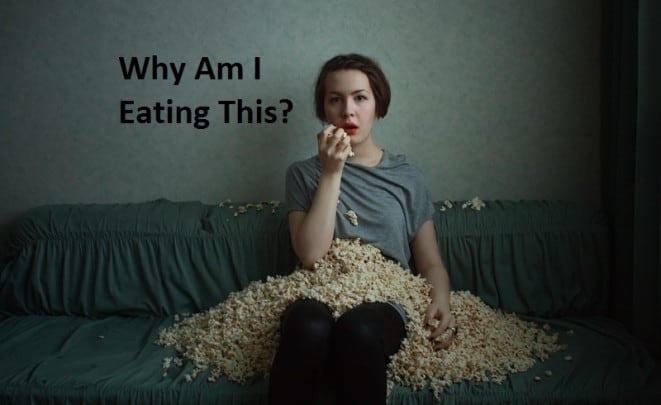I never thought of food as being addictive or destructive, like alcohol or heroin, because food is necessary and good. Food never…
- Ruined a marriage
- Effected our kids.
- Made us unhealthy.
- Made us feel shame.
- Became a substitute for happiness.
Or so I thought until I became familiar with Thin Within. I started thinking about people that I’ve known whose misuse or attitude towards food did impact their lives in these negative ways that I mentioned. Often, their emotions were the catalyst.
For example, there’s my friend who married a man who wanted a trophy wife. He ragged about her weight—even though she wasn’t fat—until the woman realized she could never be thin enough. Or pretty enough by his standards. She filed for a divorce. “I’d rather live by myself in a one-bedroom apartment with a lawn chair to my name,” she said, “than live with a controlling husband obsessed with my appearance.” Now she probably eats more than she should as if to spite him.
I had a neighbor who either didn’t know how to say “No” to her five-year-old daughter, or the woman was too lazy to cook healthy meals. Her child often ate pizza for dinner and microwaved the leftover pizza for breakfast. The girl always came to our house with a bag of chips or candy. Sadly, the last time I saw her, the girl was overweight and her good health at stake.
Another friend shared that she wet the bed until she was twelve years old. She lived in a chaotic house with parents who—argued, showed favoritism towards her other siblings, and rarely changed her bed sheets. My friend remembers going to bed each night with the damp, yellow stain on her sheet and the rancid smell of urine in her nostrils. Her only solace was food. As her weight increased, her self-esteem shrank. Now, she’s an obese woman who lives alone, can barely walk, and rarely leaves her apartment.
A co-worker of mine (back in the day) binged on an entire quart of ice cream when she felt bad about herself. Desperate to feel loved—and find a husband—she used her body to attract a man at the risk of a one-night stand. Instead of a hangover, she felt ashamed of her promiscuity the next day which only led to more binging; more pounds. More body shame.
I also think of a young mom who had a new-born baby. “I’m fat,” she said. “I’ve never weighed this much in my life. I need to lose weight.”
“It’s baby weight,” I told her, but I knew better because she was home, alone, all day with the infant while her husband worked. They didn’t have a car. Her friends worked. The young mom snacked all day because she was bored and depressed which only made her feel worse because food made her heavy—not happy.
Looking back, I realize my view on weight was skewed and judgmental. I thought these friends needed to be more disciplined and care about their health. After wrestling with weight in my later years, and studying Thin Within principles, I realize self-discipline only takes a person so far.
We can diet, cook light, eat smart, go vegan, join a gym, but these efforts are wearisome. And they don’t address or fix the core problem: Why are we over-eating, binging, purging, and eating food that we know does more harm than good?
Once I recognized the reasons—often subliminal—that govern our eating habits, my eyes opened wide. I no longer see “fat people,” I see fragile people who often use food to numb pain or as a means of escape. Even some people I’ve known who become extremely health conscious are compensating for a lack of self-esteem. Either way, our eating habits seems to rule us more than we know.
If you’re not familiar with Thin Within, I encourage you to join an online class or purchase their workbook. I joined, and learned a new approach to weight loss that had more to do with my relationship with God and how I handle life, than the food I ate.



Hi, that was a great post. Keep on posting I would love to read and reflect on more.? Reading your post is like a Christmas ?. Thanks!